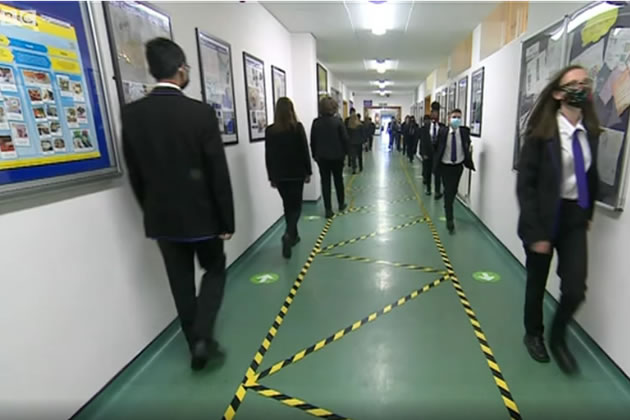70% of Ealing Borough Schools Have Had Covid Cases
264 staff and children have tested positive for the virus

October 31, 2020
Around 70 per cent of schools in Ealing have coronavirus cases as the borough continues to grapple with the highest infection rate in London.
Across the borough’s 98 state-funded schools, 70 currently have live coronavirus cases as of Friday, October 30.
Ealing Council revealed this amounted to 264 recorded positive cases.
Currently the number of ‘outbreaks’, which means two or more cases at a site were directly linked, stands at three, while a further 24 ‘clusters’ have been confirmed, where two or more children or staff tested positive but are not believed to be linked.
Last month, on September 24, the borough’s public health director said just 23 schools had reported coronavirus cases at that point.
An Ealing Council spokesperson said: “We continue to work with schools to keep them safe and open for pupils and staff.”
But Ealing’s National Education Union (NEU) district secretary Stefan Simms said headteachers and staff are at “breaking point” over the pressure put on schools since pupils’ full return in September.
He said, “The area of concern is workload because staff and headteachers have been putting in huge amounts of time and efforts for a long period of time.
“Head teachers are at breaking point, they are doing everything they can but they are not being supported.
“Staff are having to teach children at home and in lessons they can’t cope much longer either.”
And there are fears for vulnerable staff who were initially told to shield earlier in the year, that they are now still expected to work at the school sites.
Mr Simms added: “We are getting concerned for the safety of our more vulnerable staff because if they pick up the virus they could die, or could get Long Covid or spend a long time in hospital.”
Latest Public Health England data shows Ealing’s weekly coronavirus rate is 228.5 per 100,000 in the seven days up to October 24 – the highest in London.
Last week, council leader Julian Bell urged residents to follow the new Tier 2 rules, revealing that households mixing was among the top reasons for the virus spreading. He also laid blame with the government’s “failure” over the national test and trace system.
According to government guidance to schools, anyone who has been in close contact with someone who has tested positive at the school must be sent home to self-isolate for 14 days since they were last in close contact with the person with confirmed coronavirus.
This includes having a face to face conversation with someone within one metre, or being within one to two metres of that person for more than 15 minutes.
When outbreaks of coronavirus within a school are suspected, the Government says health protection teams working with the school may recommend larger numbers of students to self-isolate, or “perhaps the whole site or year group”, as a precautionary measure.
Meanwhile, Mr Simms said that schools are doing their best to make the Government’s “impossible demands” possible, but that it was a “chaotic” way to keep schools open.
He added: “We’ve got a Nightingale hospital. We want Nightingale schools with smaller class sizes…
“They [staff] are throwing everything at it. We are all trying to make this system work to the best of our ability…
“Schools have used up all their supply budgets; they have spent their money on trying to make their schools as safe as possible and staff are trying as much as they can.”
“We are berated left, right and centre but we are offered no support.”
On October 1, Education Secretary Gavin WIlliamson announced new remote education support to help schools and teachers help children learn at home if they are self-isolating.
It included an extra 100,000 laptops to be made available for children most in need to learn from home, as well as £1 million funding to expand the ‘EdTech Demonstrator’ programme which aims to help teachers and support workers use technology effectively.
Schools are also able to apply for additional cost funding due to Covid-19 if they are struggling to meet demands.
Anahita Hossein-Pour - Local Democracy Reporter